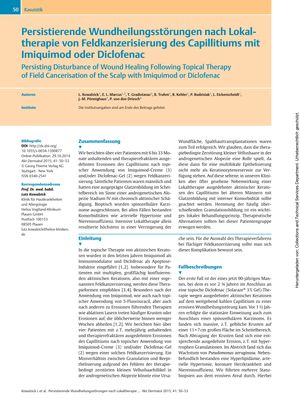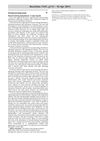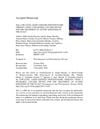Persistent Wound Healing Disorders After Local Therapy of Scalp Field Cancerization with Imiquimod or Diclofenac
October 2014
in “
Aktuelle Dermatologie
”

TLDR Older men with scalp wounds had long-term healing problems after using imiquimod or diclofenac for skin cancer prevention.
The document describes the cases of four male patients, aged 68 or older, who suffered from long-lasting wound healing problems on their scalps, ranging from 6 to 33 months, after using imiquimod cream (3 patients) and/or diclofenac gel (2 patients) to treat field cancerization. These patients all had stage IV androgenetic alopecia and additional health issues like arterial hypertension and renal insufficiency. Biopsy results excluded squamous cell carcinoma. Treatments focused on the wounds only led to a reduction in size, and skin grafts were only somewhat successful. The paper suggests that the loss of small vellus hair follicles, which are crucial for skin regeneration, due to the treatment, may have contributed to the healing difficulties. The authors advise considering other treatment options for similar patients and stress the need to control excessive tissue growth during healing.



